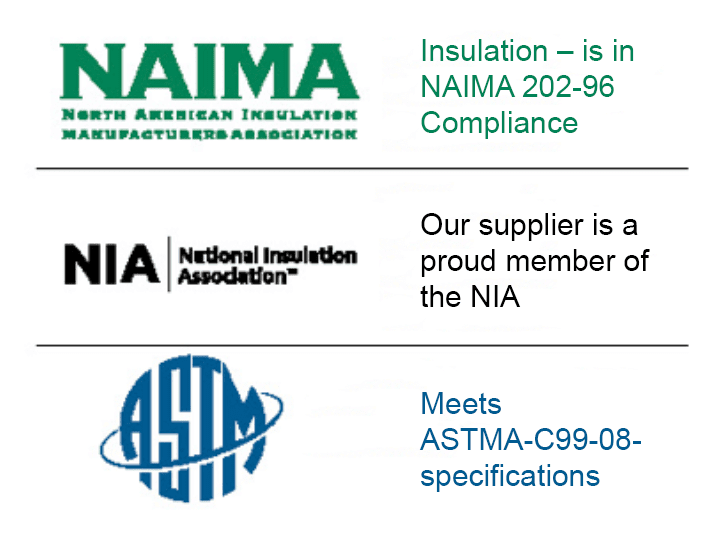Selecting the right insulation type for a construction project is crucial to ensure energy efficiency, thermal comfort, and structural integrity. However, before an insulation type can be used in a building, it must be approved by the local building department to meet safety, health, and environmental standards. This article explores the requirements and steps necessary to obtain approval for a particular insulation type from building departments, shedding light on the complex process that balances innovation and safety.
- Comply with Building Codes
The first and most fundamental requirement for any insulation type to gain approval is compliance with local building codes. Building codes specify the minimum standards for construction and safety, including regulations on insulation materials. It’s essential to thoroughly research and understand these codes, as they vary from one jurisdiction to another. The insulation type must meet or exceed the code requirements for fire resistance, thermal performance, and other relevant factors.
To seek approval for a specific insulation type, comprehensive technical documentation must be submitted to the building department. This documentation should include detailed specifications, test results, and certificates demonstrating the insulation’s suitability for use in the intended application. Testing may cover fire resistance, thermal resistance (R-value), and structural compatibility, among other factors.
- Fire Safety Testing
Fire safety is a primary concern when evaluating insulation materials. The insulation type must undergo fire safety testing to ensure it does not contribute to the spread of flames in the event of a fire. These tests may include flame spread and smoke generation evaluations, and the insulation must meet prescribed standards and benchmarks.
- Environmental and Health Impact Assessment
Building departments may require an assessment of the insulation’s environmental and health impact. This can include analyzing the insulation’s effect on indoor air quality, potential off-gassing of harmful substances, and its impact on the environment during manufacturing, use, and disposal. Sustainable and environmentally friendly insulation materials are often favored.
- Independent Certification
Many building departments require third-party certifications to ensure the quality and safety of insulation materials. Certification from recognized organizations such as the International Code Council (ICC), Underwriters Laboratories (UL), or the National Institute of Standards and Technology (NIST) can significantly boost the credibility of an insulation type and facilitate the approval process.
- Energy Efficiency Considerations
Incorporating energy-efficient insulation materials is essential in modern construction. The insulation type should offer a desirable thermal performance, measured by its R-value. It should also demonstrate its ability to reduce energy consumption and support sustainability goals, which can be an important factor in gaining approval.
- Compatibility with Other Building Materials
The insulation type should be compatible with other building materials and systems. Compatibility ensures that the insulation will work effectively in the context of the specific construction project. Testing for compatibility with adhesives, vapor barriers, and structural components may be required.
- Installer Training and Guidelines
Building departments may require documentation on proper installation procedures and guidelines for the insulation type. This ensures that the insulation is installed correctly and that it will perform as intended. Training and certification of installers may also be a prerequisite for approval.
Obtaining approval for a particular insulation type from a building department is a meticulous process that involves compliance with building codes, fire safety testing, environmental assessments, and more. The insulation type should meet stringent technical standards, demonstrate its energy efficiency, and exhibit compatibility with other building components. By diligently fulfilling these requirements and working with experienced professionals, manufacturers and builders can navigate the complex process of insulation type approval, ultimately contributing to safer, more energy-efficient, and environmentally conscious construction projects.

